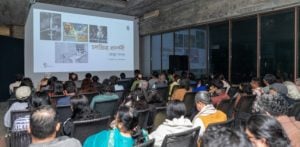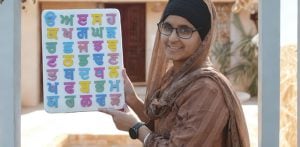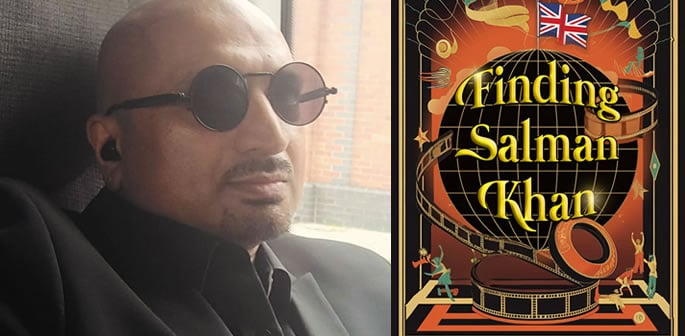"I've been living that cultural punchline my whole life."
British entrepreneur turned author Abz Mukadam is making waves with his debut comedy novel, Finding Salman Khan.
Set against the vibrant backdrop of British Asian life, the book follows an unlikely quest to track down Bollywood superstar Salman Khan, blending the absurdity of obsession with moments of heartfelt reflection.
Abz, drawing on his own experiences growing up in the UK, infuses the story with a unique mix of British wit and Bollywood humour.
Partially sighted and having faced personal challenges, Abz turns creativity into an escape, using his novel as a way to share laughter and shine a light on identity, culture, and the absurdities of modern life.
Speaking to DESIblitz, Abz delves into the book and the wider meaning behind it.
A Comedy Born from Two Worlds
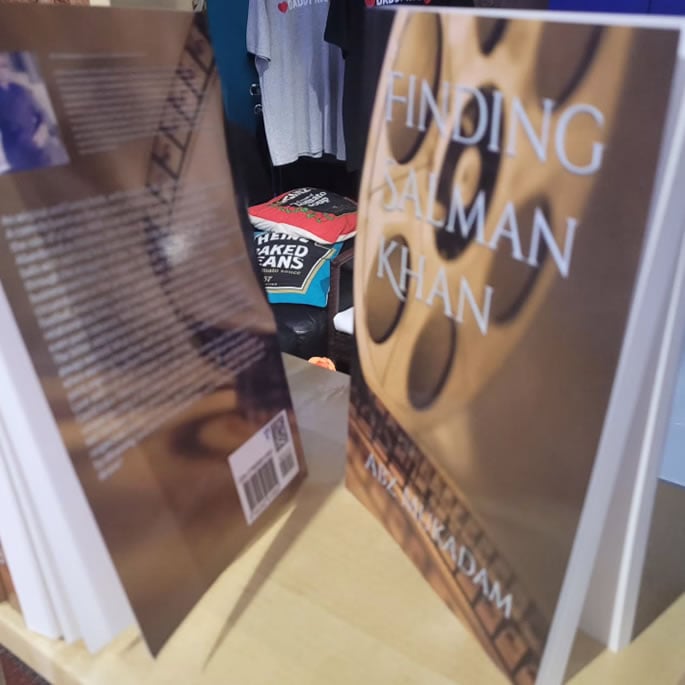
Finding Salman Khan thrives on the collision of cultures.
Abz explains how he balanced British wit with Bollywood humour:
“Having lived through the British Asian experience since the 70s, that balance isn’t something I had to consciously create; it was my reality.
British wit is often dry, understated, and thrives on irony, while Bollywood humour is vibrant, expressive, and wears its heart on its sleeve.
In the book, you’ll see a character like Callum might respond to a crisis with a sarcastic one-liner, while Mozzy’s family might break into a dramatic, emotional monologue about the same situation.
“The comedy comes from that clash and fusion. It’s the chai-and-biscuits banter in a Bradford café meeting the full-colour, song-and-dance spectacle of a family argument.
“I’ve been living that cultural punchline my whole life.”
The humour is grounded in lived experience as much as imagination. Abz reflects on the real-life inspirations behind the book’s comedic mishaps:
“That’s the magic of writing, isn’t it? The line between fiction and lived experience becomes beautifully blurred.
“While the specific, plot-driving mishaps are fictional, the emotional truth behind them, the awkwardness of a first-generation kid translating for their parents, the chaos of a multi-generational wedding, the subtle (and not-so-subtle) microaggressions one navigates, is drawn directly from life.
“I’ll leave it to the angels to decide what’s purely invented and what’s a lovingly stolen moment from reality, but the heart of every comedic mishap is undeniably authentic.”
Characters as Mirrors of Society

At the heart of the story are Callum and Mozzy, whose friendship highlights deeper societal issues.
Abz Mukadam elaborates on how the characters confront prejudice:
“Callum and Mozzy aren’t just a simple ‘mixing’ of cultures; they are a ‘fusion’.
“To truly enjoy what they create together, they have to confront the prejudices baked into their own worlds.”
“Callum might face assumptions about his working-class background, while Mozzy navigates the expectations and stereotypes placed upon him as a British Asian man.
“Their friendship forces them to challenge these societal ingredients, the xenophobia, classism, and internalised racism, and actively work to ‘mix’ them into something new.
“They don’t just coexist; they knead, they blend, and through conflict and humour, they create something entirely unique and palatable for themselves.”
Through these dynamics, the book becomes more than a comedy; it becomes a lens for examining societal assumptions and the work required to transcend them.
Exploring Identity & Belonging

Cultural identity is central to Abz Mukadam’s narrative.
Characters constantly navigate dualities, never quite fitting into one world or the other. As Mukadam put it:
“The story explores cultural identity not as a dividing line, but as the very thing that, when understood, reveals our fundamental unity.
“The characters grapple with their identities, feeling too British at home, too Asian at school, or never quite enough of either.
“But the narrative arc shows that in exploring these distinct, vibrant, and sometimes conflicting identities, they discover a common core of desires: for love, respect, family, and a place to call home.
“So, while the ‘ingredients’ of their identities are specific and important, the ultimate message is that we are all part of the same human recipe. Period.”
The process of writing the novel also deepened Abz’s understanding of identity:
“Writing the novel didn’t so much change my perspective as it crystallised it.
“It forced me to move from passively living the experience to actively observing and dissecting it.
“We all see the complexities of identity around us every day, the microaggressions, the cultural pride, the generational clashes, but we often choose to ignore them because it’s easier.
“Writing this book was my way of stopping that ignorance.
“It was an act of holding a magnifying glass up to these nuances and saying, ‘Look. See how messy and beautiful this is?’ It confirmed that identity isn’t a box to be ticked, but a fluid, ongoing conversation.”
Laughter as Connection
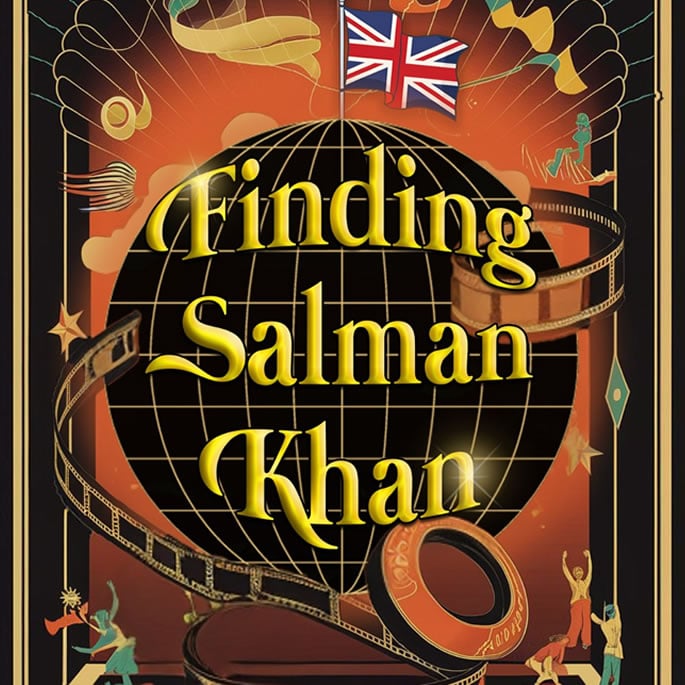
Comedy in Finding Salman Khan serves a purpose beyond entertainment. Abz Mukadam described it as a unifying force:
“Tupac captured it perfectly. Comedy, in my book, is the universal language of survival. It’s the shared laugh in a crowded room that says, ‘I understand your struggle’.
“When characters from different backgrounds, whether it’s a white British pensioner and a Punjabi auntie, find themselves laughing at the same absurd situation, that’s a moment of pure connection.
“It breaks down barriers faster than any sermon.
“The humour exposes our shared humanity and the ridiculousness we all face.”
“It’s the balm that allows these communities to ‘smile through the b******t’ together, recognising that joy and laughter are currencies that everyone understands.”
Through these shared moments of levity, Abz Mukadam illustrates how humour can bridge generational and cultural divides, transforming everyday struggles into communal resilience.
Finding Salman Khan is a comedy book that is also a celebration of cultural fusion, shared humanity, and the ways humour can bridge divides.
Through characters like Callum and Mozzy, Abz Mukadam examines identity, societal prejudice, and the search for belonging with sharp insight and warmth.
The book’s laughter is intentional, a tool to connect communities and highlight life’s universal absurdities.
For Abz, comedy is both a mirror and a balm, a way to reveal truths while keeping readers thoroughly entertained.
With this debut, he proves that wit, empathy, and storytelling can create a world where we all recognise ourselves, even in the quirkiest of adventures.
Finding Salman Khan is out now.
















